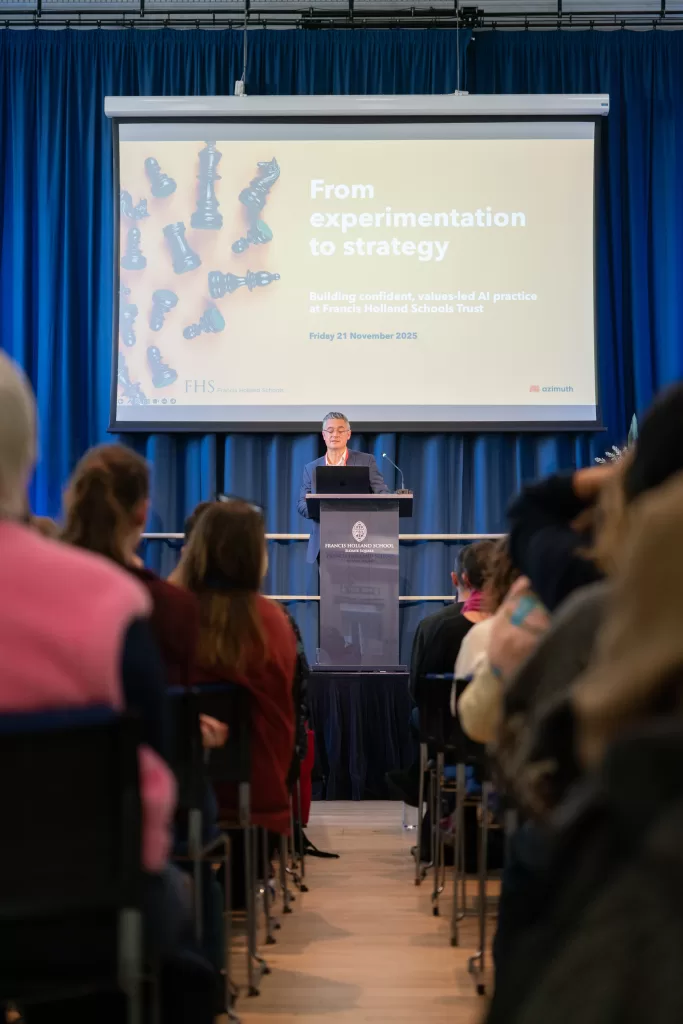In April 2025, the Department for Education published an updated Areas of Research Interest paper — a significant document not just for researchers, but for school and system leaders. It offers a clear signal of the government’s longer-term ambitions, framed through the lens of the national Opportunity Mission: to “break down barriers to opportunity at every stage.”
This paper reflects a shift in emphasis: from short-term initiatives to long-term outcomes, from isolated interventions to system-level thinking, and from research as insight to research as actionable strategy. Schools will feel the effects — and school leaders should of course take note.
Below is a summary of the seven key themes, alongside my reflections on how leaders might respond with clarity, purpose, and care.
1. Best Start in Life
The DfE is prioritising early years as the foundation for long-term success. Research is invited into how early education, family support, and childcare access improve development and readiness for school, particularly for disadvantaged children.
Reflection: A strong start demands early attention — not just in policy, but in the daily culture of the school. It begins with how children are greeted, how adults speak to one another, and how language, routines, and relationships are intentionally built from day one. Schools might consider how induction, family engagement, and early language development are woven into practice — not as isolated initiatives, but as expressions of a clear, relational strategy. The foundations of trust, belonging, and communication are laid early, and shaped deliberately. We need to welcome students into communities, not systems.
2. Every Child Achieving and Thriving
This priority focuses on driving attainment, improving attendance, and supporting children with SEND. It highlights the importance of identifying needs early, addressing mental health challenges, and fostering a sense of belonging.
Reflection: Achievement is always relational. Belonging and academic success grow together — each reinforcing the other. Schools that embed inclusion not just in policies, but in timetables, curriculum design, and classroom routines create the conditions in which all students can thrive. This isn’t about adding more — it’s about aligning what already exists around a shared commitment to visibility, dignity, and opportunity. When inclusion becomes a lens, not a layer, everything sharpens.
3. Skills for Opportunity and Growth
A new emphasis is placed on technical education, vocational pathways, and the alignment between education and the labour market. The goal is to improve routes to skilled employment and ensure that post-16 education serves both learners and the economy.
Reflection: Schools must do more than prepare students for exams — they must help them make sense of who they are becoming. Post-16 progression is not just a logistical process; it’s a narrative one. Supporting pupils to reflect on their strengths, values, and aspirations — through coaching conversations, mentoring, and exposure to meaningful pathways — helps connect academic learning to purpose and possibility. The most effective progression planning doesn’t just open doors, it helps students walk through them. Purpose and ambition cannot be uploaded to the careers portal.
4. Family Security and Resilience
The DfE recognises the need to better understand the role of safeguarding, children’s social care, and family services in creating educational stability. Schools are increasingly part of a wider ecosystem of support.
Reflection: Schools cannot solve poverty or undo trauma, nor should they be expected to — but they can offer safety, predictability, and a sense of hope. That work begins in culture: in how systems respond to challenge, how staff are supported to notice and act, and how trust is built with families over time. Leadership here means partnership — not just between agencies, but between adults who share a daily commitment to keeping the child at the centre. The most powerful interventions begin with presence and awareness, not powerpoint slides or laminated posters.
5. The Education Workforce
Attracting, developing, and retaining talented educators remains a core concern. Research is sought into workload, CPD, leadership development, and what helps staff flourish in challenging contexts.
Reflection: Retention isn’t solved by incentives alone — it’s sustained by dignity. People stay where they feel trusted, supported, and part of something purposeful. When leaders create space for reflection, offer meaningful feedback, and invest in professional growth, they don’t just reduce turnover — they cultivate a culture where people want to stay, grow, and contribute. The best leadership culture is one that asks: What do our people need to grow, and how are we helping them get there?
6. Technology and AI in Education
The DfE is cautiously optimistic about AI, digital platforms, and assistive technology. Research should explore how tech can enhance pedagogy, reduce workload, and improve accessibility — while avoiding harm or widening gaps.
Reflection: A purposeful digital strategy begins with pedagogy, not technology. Yet in many schools schools technology still arrives before clarity. The aim shouldn’t be to chase innovation, but to choose tools that serve learning; that clarify, not complicate; that reduce friction, not add it. When thoughtfully integrated, technology, including AI, can support the relational, deeply human work that great teaching requires — not replace it.
7. System Resilience and Reform
Finally, the DfE wants to know what makes education systems effective, resilient, and sustainable. This includes the role of MATs, local partnerships, implementation science, and organisational design.
Reflection: Too often, resilience is framed as personal fortitude, but resilience isn’t just about weathering pressure or gritting teeth — it’s about designing systems that bend without breaking. The most effective leaders build in flexibility, not just strength. By valuing coherence over complexity and curiosity over control, they create organisations that don’t simply perform under strain — they learn, adapt, and grow because of it.
What This Means for School Leaders
The DfE’s 2025 paper is a mirror reflecting the challenges and possibilities of the next phase in English education. For leaders, it signals the need to become not just implementers of policy, but shapers of culture.
- Evidence-informed practice is not optional.
- Workforce wellbeing will be treated as a strategic lever.
- Digital change must align with pedagogical purpose.
- The school will increasingly be seen as a node in a broader system of family, health, and economic outcomes.
Leaders who thrive in this context will be those who model reflective practice, who lead with clarity and humanity, and who bring people together around the slow work of improvement.
And a Final Word…
If these reflections resonate — and if you’re thinking about how your school can align more intentionally with these national priorities — I’d be glad to help. Through consultancy and coaching, I support school leaders to:
- Develop clear, human-centred digital strategies
- Build coaching-informed leadership cultures
- Plan purposeful, evidence-aligned CPD
If you’d like to explore how we might work together, feel free to get in touch. I’m always happy to start with a conversation.
“Clear is kind. Unclear is unkind.”
— Brené Brown
Subscribe to my newsletter
- Actionable insights on leadership, learning, and organisational improvement
- Thought-provoking reflections drawn from real-world experience in schools and beyond
- Curated resources on effective practice and digital strategy
- Early access to new articles, events, and consultancy updates
- Invitations to subscriber-only webinars, Q&As, and informal conversations
- Clarity, not clutter—you will not be bombarded by emails
Cancel or pause anytime.



